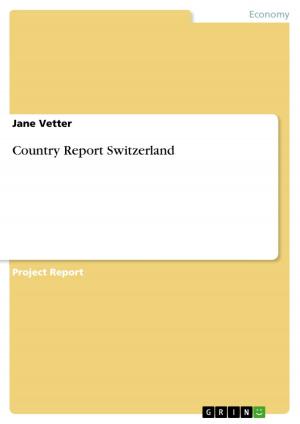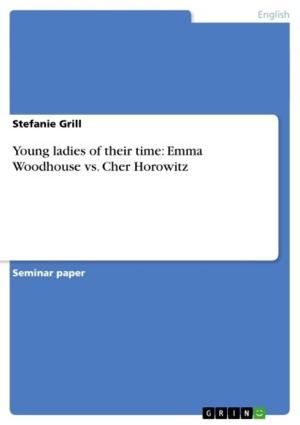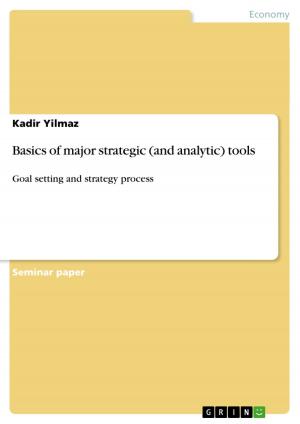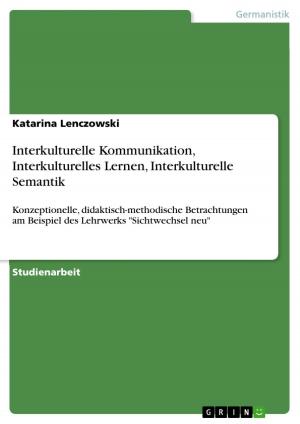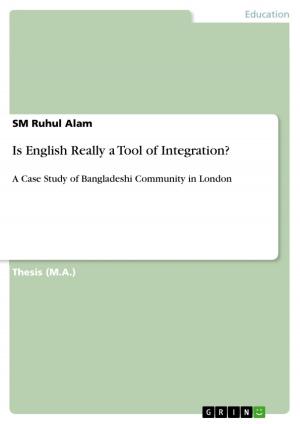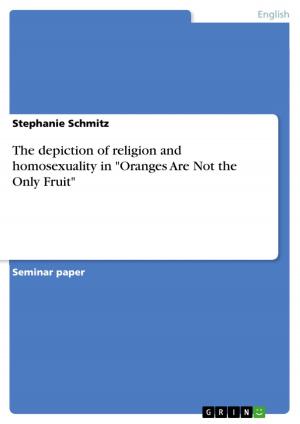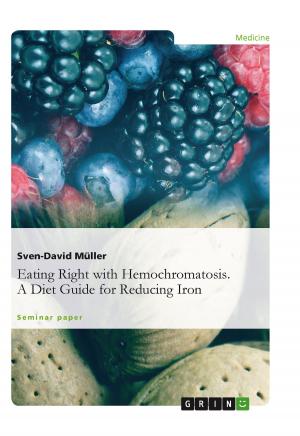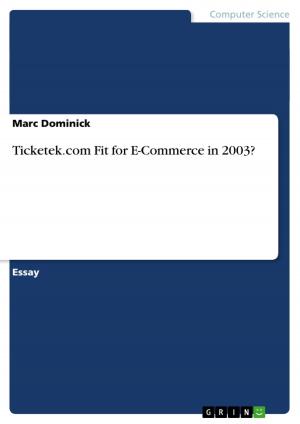The Language of The Naked Chef
Metaphorical Expressions That Make You Taste Jamie Oliver's Food
Nonfiction, Reference & Language, Study Aids, ESL, Foreign Languages| Author: | Anne Flückiger | ISBN: | 9783656179153 |
| Publisher: | GRIN Publishing | Publication: | April 26, 2012 |
| Imprint: | GRIN Publishing | Language: | English |
| Author: | Anne Flückiger |
| ISBN: | 9783656179153 |
| Publisher: | GRIN Publishing |
| Publication: | April 26, 2012 |
| Imprint: | GRIN Publishing |
| Language: | English |
Bachelor Thesis from the year 2012 in the subject English - Pedagogy, Didactics, Literature Studies, grade: 5.5 (Insigni Cum Laude), University of Basel (Englisches Seminar), language: English, abstract: Even though talking as well as writing about food, products, and cooking has quite a significant value in our daily life, it has only recently gained greater influence as a field of study within linguistics. While quite a bit of work has been done about cook books, recipes and their development through time along the lines of text linguistics, in the past years the very interesting and intriguing field of how we perceive and describe taste has increasingly been taken up by cognitive linguists (Magee 2009). Cooking shows on television, however, have not been taken into consideration. Such programmes have already been popular in radio broadcasting, made it to television in its very beginning in the 1940s, found enthusiastic fans in every generation at least since Julia Child's The French Chef on WGBH in 1962 and have increased in popularity ever since (Collins 2009). In 1999, a soon to be very important and internationally acclaimed hero of the genre found his way onto the screen in the BBC cooking show The Naked Chef, clearly taking its cue from Child's show: Jamie Oliver. The style of The Naked Chef was new, young and cool, and later found copies such as the German show Schmeckt nicht, gibt's nicht (2004) with Tim Mälzer. Oliver is supposed to have brought good taste as well as ease into British kitchens by showing people what was really wanted, namely easy and fast but healthy cooking in a relaxed atmosphere similar to the one put across by the show. As Trevor Clawson states: [..] fans and detractors alike know that 'our Jamie' speaks in the unschooled voice of ordinary British people. If you want to hear words such as 'pukka', 'malarkey' and 'luvvly jubbly' spoken over the preparation of 'Rosemary Skewered Monkfish', then Oliver is your man.' (Clawson 2010). This appraisal of the chef highlights Oliver's influence on his British audience and how much they could relate to him. At the same time it points to very thing non-cooking linguists are interested in, Oliver's language and the way he talks about the food he prepares on screen. The goal of a show such as The Naked Chef is to bring across pleasure in cooking and possibly even draw people to their own stove to cook what Oliver has shown them. It is therefore required of the chef on screen to use a language that people can understand and that evokes an appetite for the meals prepared.
Bachelor Thesis from the year 2012 in the subject English - Pedagogy, Didactics, Literature Studies, grade: 5.5 (Insigni Cum Laude), University of Basel (Englisches Seminar), language: English, abstract: Even though talking as well as writing about food, products, and cooking has quite a significant value in our daily life, it has only recently gained greater influence as a field of study within linguistics. While quite a bit of work has been done about cook books, recipes and their development through time along the lines of text linguistics, in the past years the very interesting and intriguing field of how we perceive and describe taste has increasingly been taken up by cognitive linguists (Magee 2009). Cooking shows on television, however, have not been taken into consideration. Such programmes have already been popular in radio broadcasting, made it to television in its very beginning in the 1940s, found enthusiastic fans in every generation at least since Julia Child's The French Chef on WGBH in 1962 and have increased in popularity ever since (Collins 2009). In 1999, a soon to be very important and internationally acclaimed hero of the genre found his way onto the screen in the BBC cooking show The Naked Chef, clearly taking its cue from Child's show: Jamie Oliver. The style of The Naked Chef was new, young and cool, and later found copies such as the German show Schmeckt nicht, gibt's nicht (2004) with Tim Mälzer. Oliver is supposed to have brought good taste as well as ease into British kitchens by showing people what was really wanted, namely easy and fast but healthy cooking in a relaxed atmosphere similar to the one put across by the show. As Trevor Clawson states: [..] fans and detractors alike know that 'our Jamie' speaks in the unschooled voice of ordinary British people. If you want to hear words such as 'pukka', 'malarkey' and 'luvvly jubbly' spoken over the preparation of 'Rosemary Skewered Monkfish', then Oliver is your man.' (Clawson 2010). This appraisal of the chef highlights Oliver's influence on his British audience and how much they could relate to him. At the same time it points to very thing non-cooking linguists are interested in, Oliver's language and the way he talks about the food he prepares on screen. The goal of a show such as The Naked Chef is to bring across pleasure in cooking and possibly even draw people to their own stove to cook what Oliver has shown them. It is therefore required of the chef on screen to use a language that people can understand and that evokes an appetite for the meals prepared.


